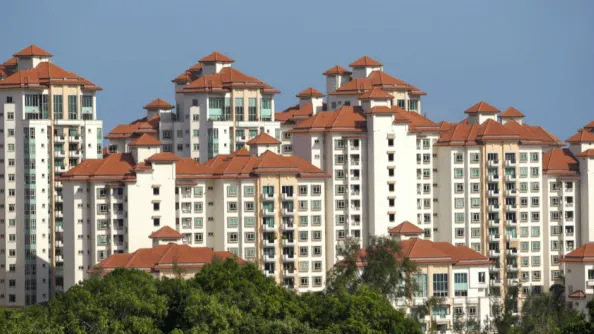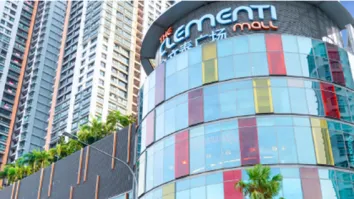
Why did Singapore prices and transaction volumes increase in 2020?
Savills provides a short narrative to explain the phenomenon.
With the tiered pandemic control of Singapore’s economy and society sliding back from Phase 3 to Phase 2, Savills thinks questions will be raised as to whether we may also revisit some of the conditions of 2020 that led to both higher residential transactions and prices compared to 2019. With that also comes speculation as to whether there will be cooling measures if prices and/or demand behave in counterintuitive fashion to the performance of the economy.
As for why prices and transaction volumes rose in 2020 over the previous year, Savills provides this short narrative: With household liquid asset holdings breaking new highs each quarter, many of the historical relations between various measures of the private residential market and economic factors fell into the background.
Therefore, variables such as interest rates, economic growth (GDP) and unemployment rates that significantly explained private residential demand in the decades prior to the last started to fade. Although private residential prices rose in the past twenty years, it was greatly outpaced by the income and savings growth by those from the median and higher household income groups.
Here’s more from Savills:
While many of the erstwhile explanatory variables of the private residential market appear to have lost their influence, it would be dangerous to believe that they are no longer relevant. We shall use interest rate as an illustration. The notable outcome from the 2008 GlobalFinancial Crisis was Quantitative Easing which brought interest rates down to anaemic levels. Consequently, this variable turned dormant in influencing private residential demand.
However, to say that this is not significant in explaining demand probably only applies to the period when rates hit the deck and/or if household liquid assets have reached a point where they do not need to borrow much or nothing at all. But should interest rates rise above a threshold, it would awaken to affect demand negatively. At this juncture though, we believe that there is enough of a store of wealth amongst Singapore resident households in the relevant income brackets (50-percentile and above) that can purchase private residential properties.
On the question of cooling measures, the market is rife with speculation of their immeniency. However, if one studies the data, the case for a significant tightening of buying and selling conditions for private residential properties is very weak. If we use the tracking error (TE) to compare private property price growth to nominal GDP growth (computed as Standard Deviation of [URA PPI rate of change – Nominal GDP rate of change]), the TE from the year 2000 to 2020 was 6.83%. After a recent raft of cooling measures, the TE from 2013 to 2020 dropped to 6.17%.
For active portfolio managers, these numbers are generally respectable if they have been outperforming the benchmark index. For the private residential market here, the authorities play a reverse role to portfolio managers and would wish to have private residential prices not outperform nominal GDP growth. How successful have they been? Very. In fact, they have over-achieved because of the slew of active measures, from the year 2013, the URA PPI change (annual) has been growing at a compound average growth (CAGR) of 0.06% vs 2.87% for nominal GDP. When compared to household income growth, the URA PPI had also been lagging for these two periods.
The talk of more measures in the pipeline was probably fanned by some quarters who understood market behaviour and tried to reap the spinoffs from driving fear into the minds of potential buyers. The speculation of more measures on the way could also be a reaction by those who did not wish to buy real estate not being able to square off their intuitive belief that an economy in recession could have both rising private residential demand and prices. However, when we look at how the URA PPI performed against nominal GDP and household income growth, the case for another round of cooling measures is very weak.
Also, using another chart to get a sense of whether market behaviour has gone awry, we see that for those major launches in Q1/2021, if a developer overpriced (relative to a hedonic model) a new launch, sales in the first week of project release will be negatively impacted and vice versa. The slope is steeper than the unitary elasticity line (where a 1% overpricing leads to a 1% drop in sales) which means that the market is generally very sensitive to pricing taking into account the attributes of the project.
For 2021, although we back-slided to Phase 2 of the pandemic response scale, market feedback returns show that potential buyers are still holding onto strong positive attitudes to owning private residential properties. This could mean that there is so far no puncture in market sentiment. With inflationary tailwinds blowing slowly, it should also keep nominal GDP high. Given the correlation between the URA PPI and nominal GDP growth rates, if the latter rises 9% this year, private residential prices are expected to increase 5.5% YoY.



















 Advertise
Advertise






